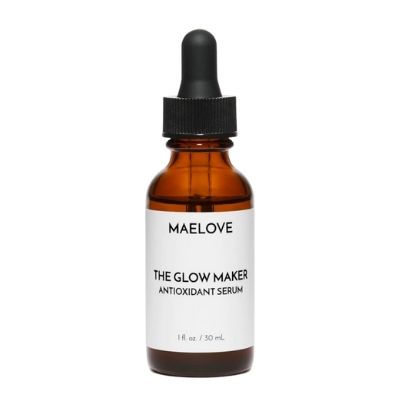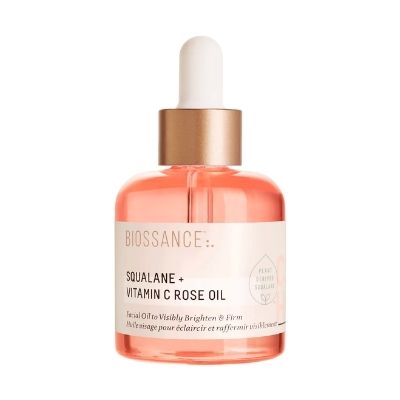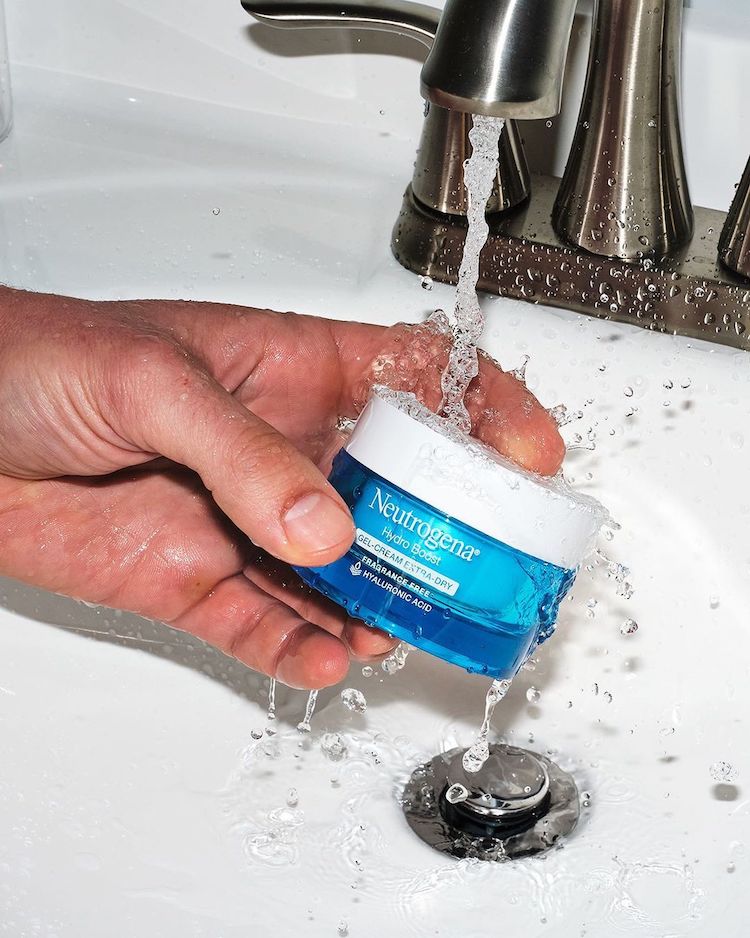TL;DR: Yes, you need a vitamin C serum in your skincare routine. You’ve likely heard of the magical ingredient or maybe even toyed around with testing one, but did you know it’s one of dermatologists’ most-recommended ingredients to add to your skincare routine?
Get 20% off your first order with code EVERYGIRL20!
Vitamin C is one of the most universally effective and well-rounded active ingredients in skincare. No matter what type of issues you have with your skin—dullness, hyperpigmentation, redness, fine lines, lack of firmness—vitamin C will yield some impressive improvements to the appearance of your complexion once you commit to daily application of it.
What is Vitamin C?
Just like the vitamin C you take to stave off sickness during cold and flu season, vitamin C in skincare acts as a powerful antioxidant against environmental free radicals that aim to wreak havoc on your face. Vitamin C is used for brightening skin, fading dark spots left behind after breakouts, and establishing a more even skin tone.
How exactly does it do this? The visible effects of oxidative stress, a state that our skin goes into when there are not enough antioxidants to combat the damage caused by free radicals, can present itself as sallow skin tone, redness, and generally unwell-looking skin. Free radicals are created when our cells encounter damaging agents in our environment such as air pollution, vehicle emissions, cigarette smoke, dirt, and UVA/UVB rays.
Vitamin C Benefits for Skin
Extensive oxidative stress can weaken your skin; therefore, it can accelerate aging as well as hyperpigmentation caused by post-acne scarring or sun damage. Vitamin C is not just a potent topical antioxidant; it is one of the more versatile active ingredients, as it also stimulates the skin’s production of collagen and is naturally anti-inflammatory—good news for people who also suffer from acne, oiliness, or blackheads or those who want some anti-aging properties.
Basically, everyone benefits from vitamin C. There is definitely a lot of “fluff” in skincare that you could do without, but if you’re focusing on youth preservation, calming redness and inflammation, fading dark spots, or just wanting that elusive “glow” that only Glossier models seem to naturally possess, you really shouldn’t skip vitamin C.

Source: @hyperskin
How to Choose a Vitamin C Serum
Vitamin C is surprisingly complicated to formulate in a way that guarantees its effectiveness. The active ingredients needed to make a potent serum are extremely sensitive to oxidation and light exposure, so the packaging of these products is just as important as the formula itself.
A few of the most popular forms of vitamin C in skincare are ascorbic ccid (also L-ascorbic acid), magnesium ascorbyl phosphate, sodium ascorbyl phosphate, and ascorbyl tetraisopalmitate. If you are looking at the ingredients list of a supposed vitamin C product and none of the aforementioned are listed in the first couple ingredients, the product is not potent enough to show results.
L-ascorbic acid is the most commonly used vitamin C derivative used in skincare, but with a pH of 3.5, it is also the most acidic varietal. Most skin types can tolerate L-ascorbic acid, but if you are particularly sensitive, then consider formulas with any of the other commonly used derivatives—just know it will take longer to see the desired results.
Ideally, your vitamin C serum will be packaged in an air-tight container with a pump that is either an opaque or amber-hued bottle to avoid oxidation and light exposure. A lot of vitamin C serums come with pipet applicators, which unfortunately allow for daily air exposure. While this is not ideal, it does not necessarily mean that it will be a bad product.
With every vitamin C serum, it is important to understand that there is an expiration date on the product. Take note of the characteristics of your serum when you first begin using it. Once your product changes color, texture, smell, or becomes cloudy, you need to discontinue use immediately, as it has oxidized and therefore expired. Vitamin C serums typically have a shelf life of around six months to a year after opened.

Source: @ryupure
How to Use Vitamin C Serum
Because the environmental aggressors that create free radicals are typically encountered during the day, vitamin C is usually incorporated into morning routines. You can use a vitamin C serum at night, but it will likely negatively interact with other active ingredients typically used at night, such as retinol or AHAs. You do not need to apply vitamin C serum twice a day.
After cleansing, toning, and hydrating with an essence or another serum, layer your vitamin C serum before finishing up with moisturizer and SPF. There are many reasons why you have to wear UVA/UVB protection every single day, but SPF and vitamin C really are two peas in a pod—both work to lessen the effects of oxidative stress on your skin. Your vitamin C serum doesn’t have to work as hard when combined with SPF, and vice versa.
The Best Vitamin C Serums
Best Vitamin C Overall
Made with the classic blend of vitamin C (through L-ascorbic acid), vitamin E, and ferulic acid, this serum has everything you need for a bright, even complexion—without having to shell out major cash.
Best Vitamin C for Dry Skin
Unlike other active ingredients, vitamin C is suitable (and recommended) for dry skin types. This one, paired with squalane, seeks to brighten and firm skin, leaving it super glowy.
Best Vitamin C for Oily Skin
This concentrated serum has a thin, lightweight texture that's easy to layer, especially for people with oily skin who don't want an oily product on their face all day. Plus, with hyaluronic acid, it'll lock in moisture without making your skin feel heavy.
Best Vitamin C for Sensitive Skin
With only 3% vitamin C (in comparison to the many on this list with 15%), you don't have to worry about that tingly dryness you might get with other vitamin C products. But don't worry: This is still just as brightening and glow-inducing as any other.
Best Vitamin C for Hyperpigmentation
If you're in the business of fading dark spots, Hyper Skin mixes vitamin C and kojic acid to exfoliate, brighten, and actually prevent more dark spots from cropping up.
Best Vitamin C Splurge
When you think of vitamin C, you probably think of this one. It's loved by dermatologists, celebs, and estheticians alike—and we're here to admit that it's worth the $$$ price tag. It leaves glowy, bright skin after a mere couple uses.
Best Budget-Friendly Vitamin C
With nearly 29,000 reviews on Amazon, this serum ranks at the top of the list in both budget and efficacy. If you're worried about dryness, this vitamin C is made with aloe and jojoba oil to moisturize and soothe skin.
Best Anti-Aging Vitamin C
This alcohol-free, oil-free capsule is designed to reduce dark spots, smooth texture, and reduce the appearance of fine lines and wrinkles, thanks to 20% vitamin C that deeply penetrates skin.



 "
"








